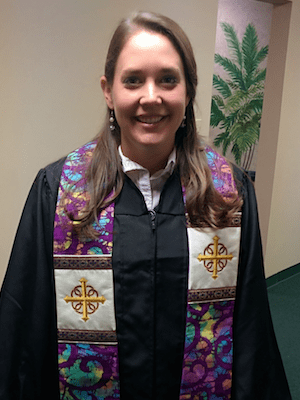January provides the in-between respite between high and holy seasons. The time in between the hopeful expectation of Advent and the darkness and wilderness of Lent.
January should be a time of rest and recuperation. A time of seeking the Divine and wandering the world in search of the Holy Mystery, but in so many cases, instead of being a time of renewal, January is full of discussions and negotiations about budgets.
Budget discussions and negotiations are often one of the most difficult parts of being church in our current context.
Declining church membership and declining church donations make budget conversations tense and filled with uncertainty.
I’ve heard story after story of clergy who have walked into budget meetings only to find out that their salaries have been reduced or that their hours have moved from full-time to part-time or from part-time to even more part-time.
The worry that clergy carry as they wonder if they will be able to take care of their families weighs heavily on their shoulders. Times of rest and renewal turn into times of worry and uncertainty.
To think that this worry doesn’t impact clergy’s ability to plan and lead in those high holy seasons is to turn a blind eye to just how much clergy have to balance as they lead our churches today.
There’s an ongoing joke among clergy that ministry would be fulfilling and life-giving if it weren’t for church business meetings, especially those business meetings that include votes to approve the budget.
Too often, budget discussions and negotiations leave us at odds with each other, our community and, most dangerously, our call to be God’s hands and feet in this world.
We desperately need to reframe the conversations surrounding what we are doing, but more importantly, why we are still trying to do the work of God.
We get so caught up in line items, giving units and ways we can reduce or cut spending that we forget that all of those line items were created not to be a business, but to be about the business of bringing God’s kingdom here on earth.
We have lost our sense of wonder and creativity as we continue to approach budget discussions and doing church the same way we have for the last 50 years.
What if, instead of asking church members to increase their giving by a certain percentage to cover budget discrepancies, we invited the Holy Spirit to give us a new perspective, a new vision of what it means to be church?
What if we stopped looking at the resources the church has as our own resources, but instead as resources that God and the Holy Spirit were invited to use however was most effective?
What if instead of being attached to my church, we began to see we are members of our church, the church universal?
Maybe if we invited the Holy Spirit to open our eyes, we would stop studying the budget and start studying the way God is still moving in and among us, whispering and inviting us to something much, much bigger than budgets and giving campaigns – something divine and mysterious that brought us all together.
Pastor of Garden of Grace United Church of Christ in Columbia, South Carolina, and editor-in-chief of Harrelson Press Publishing.


